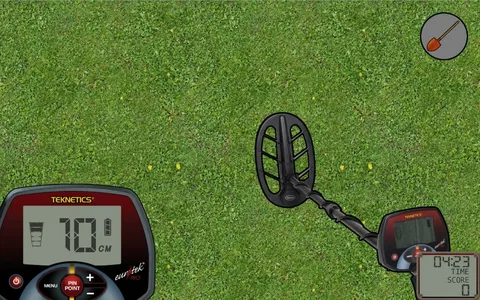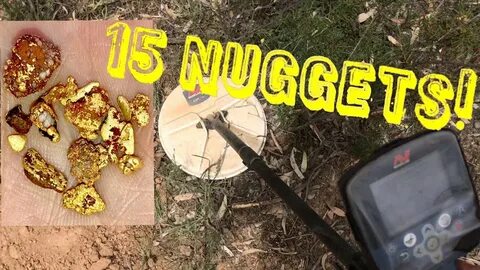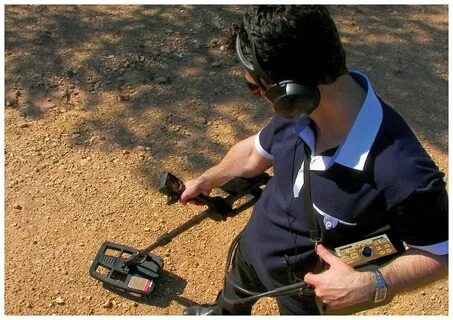Metal detectors are essential tools for people who are interested in treasure hunting or looking for valuable items buried in the ground. For beginners, finding the best metal detector can be a daunting task. With so many options available in the market, it can be overwhelming to choose the right one. In this article, we will provide 10 tips for finding the best metal detectors for beginners, helping you make an informed decision and find the perfect tool for your treasure hunting adventures.
1. Consider your budget – Decide how much you are willing to spend on a metal detector as there are varying price ranges available in the market.
2. Research different types – There are different types of metal detectors such as VLF, PI, and BFO. Research each type and see which one is best suited for beginners.
3. Read reviews – Look for reviews of different metal detectors to see how they have performed for other users.
4. Consider the weight – If you are a beginner, you may want to start with a lighter metal detector to avoid fatigue and make it easier to handle.
5. Look for adjustable settings – A metal detector with adjustable settings can help you fine-tune your search based on the terrain and targets you are looking for.
6. Consider the waterproof feature – If you plan to use your metal detector near water, it may be beneficial to look for a waterproof option.
7. Look for automatic ground balancing – This feature can help beginners adjust to different soil types without having to manually adjust settings.
8. Consider additional features – Some metal detectors come with additional features such as built-in pinpointers or target ID displays which can be helpful for beginners.
9. Ensure it comes with a warranty – Look for a metal detector that comes with a warranty to protect your purchase in case of any defects or malfunctions.
10. Test it out – If possible, try out different metal detectors before making a final purchase to see which one you feel most comfortable using.
The Beginner’s Guide to Metal Detectors: How to Get Started
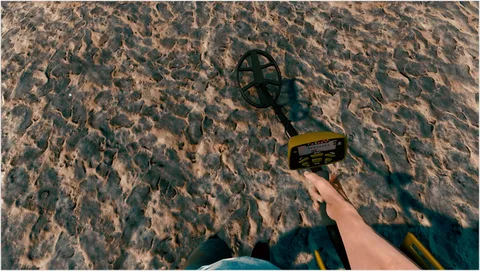
The Beginner’s Guide to Metal Detectors: How to Get Started is a comprehensive resource for those new to metal detecting. The guide covers the basics of using a metal detector, including how to properly set up and calibrate the device, as well as tips for finding and identifying different types of objects. Additionally, the guide offers advice on choosing the right metal detector for your needs and budget, as well as how to care for and maintain your equipment. Whether you’re interested in treasure hunting, relic hunting, or simply exploring the outdoors, this guide provides valuable information to help you get started on your metal detecting journey.
Top 10 Metal Detectors on the Market: A Comparison
See also: gold detector
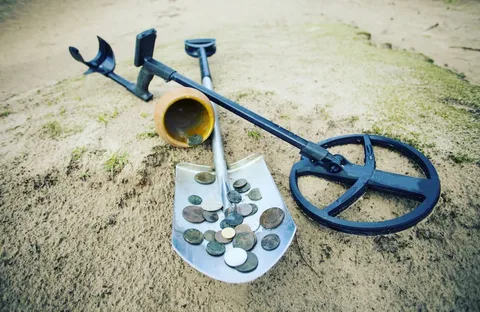
Here are the top 10 metal detectors on the market, along with their key features and specifications:
1. Minelab Equinox 800: Multi-frequency technology, waterproof design, advanced settings for experienced users.
2. Garrett AT Pro: All-terrain detector, suitable for use in wet, humid, and dusty environments, digital target ID.
3. XP Deus: Wireless coil and headphones, lightweight and ergonomic design, customizable settings.
4. Nokta Makro Simplex+: Fully submersible up to 10 feet, built-in rechargeable battery, lightweight and easy to use.
5. Fisher F75: Fast target response, large LCD screen, high sensitivity to small targets.
6. Minelab CTX 3030: GPS locating, waterproof design up to 10 feet, advanced target discrimination.
7. Garrett ACE 400: Digital target ID, multiple search modes, adjustable frequency.
8. Teknetics T2: Highly sensitive for small targets, large LCD screen, comfortable ergonomic design.
9. Bounty Hunter Tracker IV: Simple and affordable, manual ground balance, discrimination control.
10. Tesoro Compadre: Lightweight and easy to use, simple turn-on-and-go operation, great for beginners.
Metal Detecting: The Ultimate Hobby for History Buffs
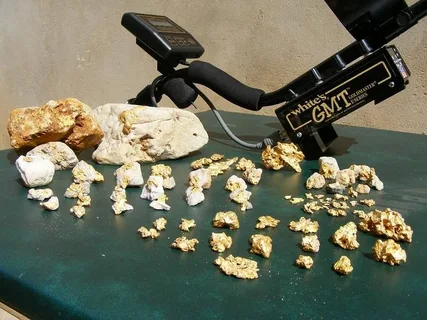
Metal detecting is a popular hobby for history buffs because it allows them to uncover hidden treasures and artifacts from the past. Whether searching for old coins, Civil War relics, or ancient artifacts, metal detecting offers enthusiasts a chance to connect with history on a more tangible level. Many hobbyists enjoy the thrill of discovering something that has been buried for years, and the potential to uncover historically significant items adds an extra element of excitement to the activity. Additionally, metal detecting provides a great opportunity for outdoor exploration and exercise. Overall, metal detecting is a fulfilling and engaging hobby for those with a passion for history.
Unearthing Treasures: The Art of Metal Detecting
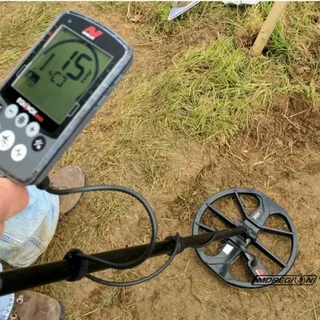
Unearthing Treasures: The Art of Metal Detecting is a book that delves into the world of metal detecting as a hobby and a passion. It provides detailed insights into the history and techniques of metal detecting, as well as tips for identifying and preserving discovered treasures. The book also includes firsthand accounts of successful metal detecting adventures and the stories behind some of the most remarkable finds. Whether you are a beginner or a seasoned enthusiast, this book offers valuable information and inspiration for anyone interested in the art of metal detecting.
The Science Behind How Metal Detectors Work
Metal detectors work based on the principles of electromagnetism. When a metal object is brought into the range of the detector’s electromagnetic field, it disrupts the field, causing a change in the detector’s electrical properties. This change is then detected by the device, which signals the presence of metal.
There are different types of metal detectors, including beat frequency oscillation (BFO), very low frequency (VLF), and pulse induction (PI) detectors. Each type operates slightly differently but relies on the same basic principle of using electromagnetic fields to detect metal.
BFO detectors use two coils of wire where one coil is the search coil and the other is a receiver coil. When a metal object is near, it disrupts the frequency of the radio waves being transmitted between the coils, resulting in an audible tone.
VLF detectors use two coils as well, but they are both in the search coil. One coil sends out a current that creates a magnetic field, and the other coil receives the magnetic field and detects any disruptions caused by metal objects.
PI detectors use a single coil of wire to transmit and receive electrical pulses. When the pulse is sent out, any metal object in the vicinity will cause a reflected pulse to be received by the detector.
Overall, metal detectors are effective due to their ability to sense disruptions in electromagnetic fields caused by metal objects, making them useful tools for various applications, including security screening, archaeology, and hobbyist treasure hunting.
Metal Detecting Etiquette: Do’s and Don’ts for Hobbyists
– Do obtain permission before metal detecting on private property
– Do respect laws and regulations regarding metal detecting in public areas
– Do fill in any holes you dig while metal detecting
– Do dispose of any trash or debris you find while detecting
– Do report any significant historical or valuable finds to the appropriate authorities
– Don’t trespass on private property without obtaining permission
– Don’t disturb or damage any plants, wildlife, or historical artifacts while metal detecting
– Don’t leave any holes open or unattended while metal detecting
– Don’t litter or leave any trash behind while metal detecting
– Don’t share the location of significant finds with others without the permission of the landowner or authorities
From Coins to Artifacts: What You Can Find with a Metal Detector
“From Coins to Artifacts: What You Can Find with a Metal Detector” is a comprehensive guide that explores the wide range of items that can be discovered with a metal detector. The book covers the basics of metal detecting as well as advanced techniques for locating valuable and historically significant objects. Readers will learn about the types of items that can be found, including coins, jewelry, and historic artifacts. The book also provides tips for researching and identifying found items, as well as advice for preserving and displaying discovered treasures. Whether you are a beginner or experienced metal detectorist, this book offers valuable insights and practical advice for discovering unique and valuable items with a metal detector.
The Pros and Cons of Using a Metal Detector for Treasure Hunting
Pros:
– Metal detectors can help treasure hunters locate valuable items such as coins, jewelry, and artifacts.
– They can be used in a variety of environments, including beaches, forests, and fields.
– Metal detectors are relatively easy to use and can be an enjoyable hobby for many people.
– Finding valuable items with a metal detector can be exciting and rewarding.
Cons:
– Using a metal detector can be time-consuming and may not always result in valuable finds.
– Some areas may have restrictions on metal detecting, and treasure hunters may need permission to search certain areas.
– Metal detecting can be physically demanding, especially when searching in rough terrain or for extended periods of time.
– The initial cost of a high-quality metal detector can be expensive, and there may be additional costs for accessories and maintenance.
Metal Detecting as a Family Activity: Fun for All Ages
Metal detecting as a family activity is a great way to spend quality time together while enjoying the thrill of uncovering hidden treasures. It is a hobby that can be enjoyed by people of all ages, from young children to grandparents.
Metal detecting promotes outdoor exploration and physical activity, as participants explore various terrains while searching for buried items. It also encourages an appreciation for history and the environment, as the discoveries made can provide insights into the past and the natural surroundings.
The excitement of finding coins, jewelry, or other valuable items can create lasting memories for the whole family. Additionally, it provides an opportunity for learning about different metals and how metal detectors work.
When engaging in metal detecting as a family activity, it is important to research and follow local laws and regulations regarding where it is permissible to use metal detectors. It is also advisable to obtain permission before searching on private property. Overall, metal detecting can be a fun and rewarding activity for families to enjoy together.
The History of Metal Detectors: From Military Use to Treasure Hunting
The history of metal detectors dates back to the late 19th century when they were first used for military purposes. The invention of the metal detector is often credited to inventor Alexander Graham Bell, who developed a device to locate a bullet lodged in President James Garfield’s body in 1881.
During World War I, metal detectors were used to detect landmines and unexploded ordnance. In the 1920s, the first handheld metal detectors were developed for industrial and security purposes.
In the 1960s, metal detectors gained popularity among hobbyists and treasure hunters, who used them to search for buried artifacts, coins, and other valuable items. Today, metal detectors are widely used for a variety of purposes, including security screening, industrial applications, and recreational treasure hunting.
Advancements in technology have led to the development of more sophisticated metal detectors with increased sensitivity and discrimination capabilities, making them valuable tools for archaeologists, law enforcement agencies, and hobbyists alike.

